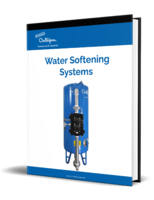NSF certifies reactivated carbon for water treatment.
Press Release Summary:
NSF International announced that Calgon Carbon Corporation's plant in Blue Lake, CA is first to receive NSF certification for reactivated carbon used for water treatment. NSF certification to NSF/ANSI Standard 61: Drinking Water System Components - Health Effects verifies that reactivated carbon is safe for reuse in municipal water treatment applications, such as those used to treat river, lake, or well water, making it potable for humans.
Original Press Release:
NSF International Certifies First Reactivated Filtration Media Used for Water Treatment
Certification verifies that reactivated carbon media is free from harmful levels of contaminants and safer for the environment
ANN ARBOR, Mich. - NSF International, a public health and safety organization, announced today that Calgon Carbon Corporation's plant in Blue Lake, California is the first to receive NSF certification for reactivated carbon used for water treatment. NSF certification to NSF/ANSI Standard 61: Drinking Water System Components - Health Effects verifies that the reactivated carbon is safe for reuse in municipal water treatment applications, such as those used to treat river, lake or well water, making it potable for humans.
Municipal water treatment plants use activated carbon (media) to reduce organic compounds and contaminants in drinking water, and this carbon media needs to be periodically replaced. Rather than disposing spent media in a landfill, the media can be reactivated, which removes contaminants and enables it to be reused by municipal water treatment facilities. Certification to NSF/ANSI 61 ensures the reactivated media reused by municipal water treatment plants meet national requirements for health and safety.
NSF/ANSI Standard 61: Drinking Water System Components - Health Effects outlines requirements for regenerated/reactivated water treatment media, including inspections of regeneration facilities as well as periodic testing of regenerated media by an accredited certifying organization. NSF/ANSI 61 also requires that the regeneration/reactivation facilities have a robust quality system, ongoing evaluations of contaminants in the raw source water, and an evaluation of the regeneration process to verify removal of these contaminants.
Reactivation is a high-temperature thermal process, whereby spent water filtration media can be safely and cost effectively treated and reused. During the reactivation process, absorbed organic compounds and contaminants are destroyed, and the reactivated carbon's filtration capacity is restored. Reactivation also is better for the environment, significantly reducing the CO2 footprint associated with the production, supply and use of virgin activated carbon.
Commenting on the announcement, Robert O'Brien, Calgon Carbon's executive vice president said, "Achieving NSF Certification for the reactivation of municipal potable water media is a significant achievement. It enables us to provide a cost effective solution to the problems our municipal clients have in controlling tastes and odors and disinfection byproducts."
To obtain certification from NSF International, Calgon Carbon completed a rigorous process that included submission of product samples, formulation reviews, data collection, testing and monitoring. NSF will periodically audit Calgon's facility and test samples to ensure ongoing compliance.
For additional information on NSF International's Water Treatment and Distribution Systems Program, please visit http://www.nsf.org/business/water_distribution/index.asp.
For more information about Calgon Carbon's leading activated carbon and ultraviolet technology solutions for municipalities and industries, visit www.calgoncarbon.com. Calgon Carbon Corporation, headquartered in Pittsburgh, Pennsylvania, is a global leader in services and solutions for making water and air safer and cleaner.
About NSF International: NSF International, an independent, not-for-profit organization, certifies products and writes standards for food, water and consumer goods to minimize adverse health effects and protect the environment (www.nsf.org). Founded in 1944, NSF is committed to protecting human health and safety worldwide and operates in more than 120 countries. NSF is a World Health Organization Collaborating Centre for Food and Water Safety and Indoor Environment.
Since NSF/ANSI Standard 61: Drinking Water System Components - Health Effects was developed in 1989, NSF International has been dedicated to protecting the public and educating consumers on contaminants, such as lead in drinking water products.
Additional NSF services include NSF Education and Training programs, safety audits for the food and water industries, dietary and nutritional supplement certification, management systems registrations (e.g. ISO 14001) delivered through NSF International Strategic Registrations.




